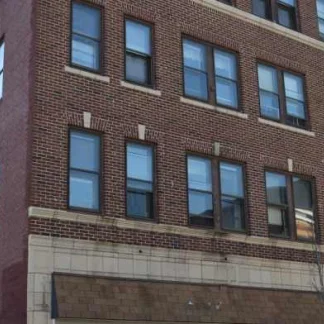John Corrigan Mental Health Center
John Corrigan Mental Health Center, located in Fall River, Massachusetts, is a d...
Stone Residence offers inpatient treatment for individuals with alcohol and/or substance addiction. Stone Residence is located at Fall River, Massachusetts.
Stone Residence’s mission is to increase quality of life among individuals and families of their community through providing comprehensive client-center programs and services that enhance well-being and promote independence.
Steppingstone’s vision is to excel in empowering individuals and families to reach their highest potential in mind, body and spirit; achieved through staff development, financial feasibility, developing and expansion of target populations, and community collaboration.
Stone Residence provides supportive housing to chronic homeless individuals that are struggling with co-occurring (substance abuse and mental illness) or co-existing (substance abuse and HIV/AIDS) disorders. Clients must meet HUD’s income guidelines to be admitted.
Contact us for more information: (508) 675-4159

Connect with Stone Residence by calling their admissions team directly.
(508) 675-4159 Website Get DirectionsGroup therapy is any therapeutic work that happens in a group (not one-on-one). There are a number of different group therapy modalities, including support groups, experiential therapy, psycho-education, and more. Group therapy involves treatment as well as processing interaction between group members.
In individual therapy, a patient meets one-on-one with a trained psychologist or counselor. Therapy is a pivotal part of effective substance abuse treatment, as it often covers root causes of addiction, including challenges faced by the patient in their social, family, and work/school life.
Life skills trainings involve all the skills a person must have in order to function successfully in the world. These include time management, career guidance, money management, and effective communication. Truly successful addiction recovery is based on the ability to not only live substance-free, but to thrive. Life skills teaches the practical necessities of functioning in society, which sets clients up for success in life, and therefore sobriety.
Recreational therapy (aka therapeutic recreation) uses creative and fun activities to help with addiction recovery. Recreational therapists lead patients in entertaining and engaging activities like sports or games; art (drawing, painting, sculpture); drama, music, and dance; and/or community outings (field trips) to improve patients' physical, social, and emotional well-being.
In individual therapy, a patient meets one-on-one with a trained psychologist or counselor. Therapy is a pivotal part of effective substance abuse treatment, as it often covers root causes of addiction, including challenges faced by the patient in their social, family, and work/school life.
Life skills trainings involve all the skills a person must have in order to function successfully in the world. These include time management, career guidance, money management, and effective communication. Truly successful addiction recovery is based on the ability to not only live substance-free, but to thrive. Life skills teaches the practical necessities of functioning in society, which sets clients up for success in life, and therefore sobriety.
Recreational therapy (aka therapeutic recreation) uses creative and fun activities to help with addiction recovery. Recreational therapists lead patients in entertaining and engaging activities like sports or games; art (drawing, painting, sculpture); drama, music, and dance; and/or community outings (field trips) to improve patients' physical, social, and emotional well-being.
Life skills trainings involve all the skills a person must have in order to function successfully in the world. These include time management, career guidance, money management, and effective communication. Truly successful addiction recovery is based on the ability to not only live substance-free, but to thrive. Life skills teaches the practical necessities of functioning in society, which sets clients up for success in life, and therefore sobriety.
Recreational therapy (aka therapeutic recreation) uses creative and fun activities to help with addiction recovery. Recreational therapists lead patients in entertaining and engaging activities like sports or games; art (drawing, painting, sculpture); drama, music, and dance; and/or community outings (field trips) to improve patients' physical, social, and emotional well-being.
Recreational therapy (aka therapeutic recreation) uses creative and fun activities to help with addiction recovery. Recreational therapists lead patients in entertaining and engaging activities like sports or games; art (drawing, painting, sculpture); drama, music, and dance; and/or community outings (field trips) to improve patients' physical, social, and emotional well-being.
John Corrigan Mental Health Center, located in Fall River, Massachusetts, is a d...
Home First offers inpatient treatment for individuals that are struggling with a...
Steppingstone - Outpatient clinic offers outpatient treatment for individuals wi...
Mass Coalition is a private rehab located in Fall River, Massachusetts. Mass Coa...